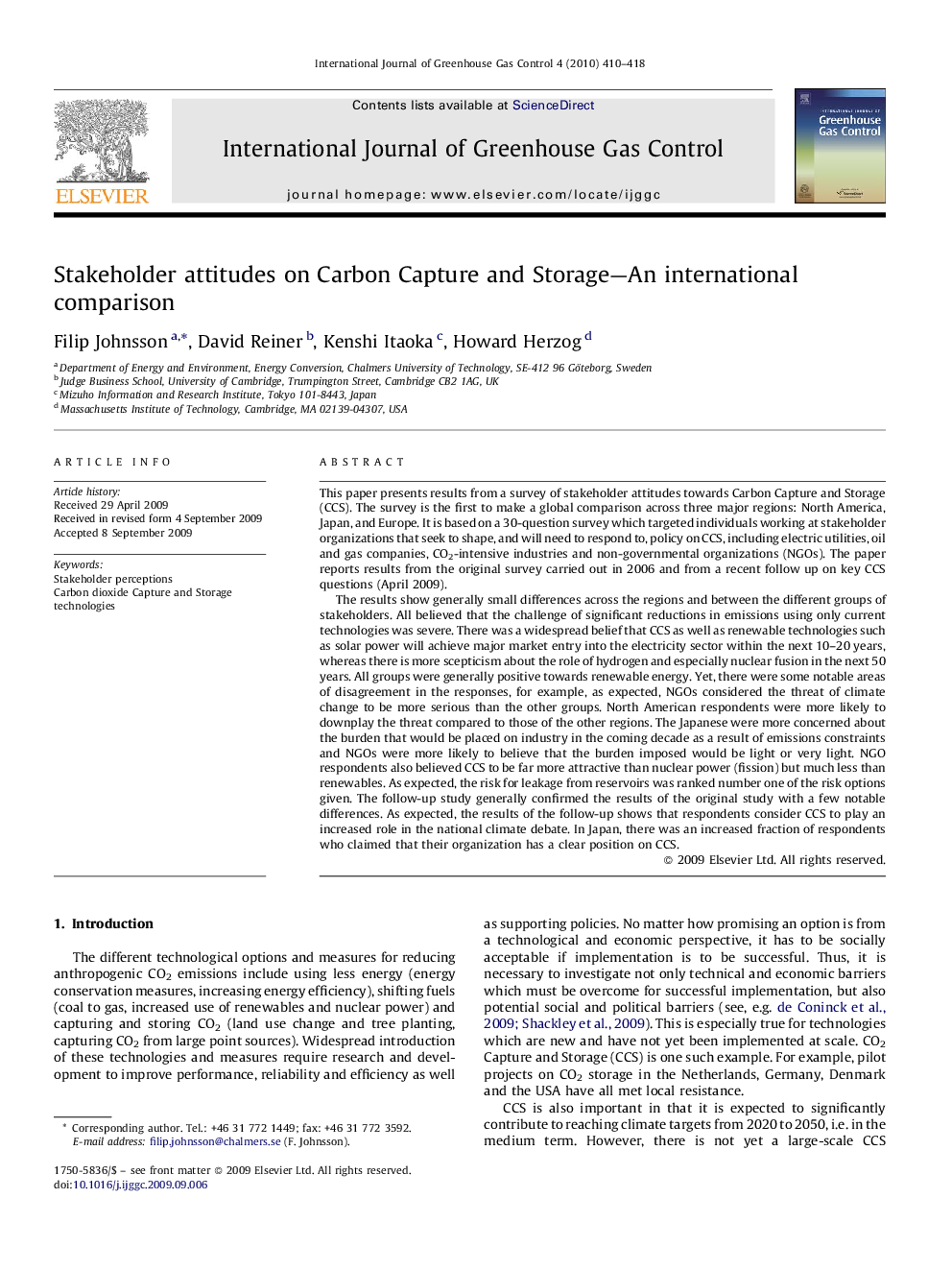| کد مقاله | کد نشریه | سال انتشار | مقاله انگلیسی | نسخه تمام متن |
|---|---|---|---|---|
| 1743749 | 1522029 | 2010 | 9 صفحه PDF | دانلود رایگان |

This paper presents results from a survey of stakeholder attitudes towards Carbon Capture and Storage (CCS). The survey is the first to make a global comparison across three major regions: North America, Japan, and Europe. It is based on a 30-question survey which targeted individuals working at stakeholder organizations that seek to shape, and will need to respond to, policy on CCS, including electric utilities, oil and gas companies, CO2-intensive industries and non-governmental organizations (NGOs). The paper reports results from the original survey carried out in 2006 and from a recent follow up on key CCS questions (April 2009).The results show generally small differences across the regions and between the different groups of stakeholders. All believed that the challenge of significant reductions in emissions using only current technologies was severe. There was a widespread belief that CCS as well as renewable technologies such as solar power will achieve major market entry into the electricity sector within the next 10–20 years, whereas there is more scepticism about the role of hydrogen and especially nuclear fusion in the next 50 years. All groups were generally positive towards renewable energy. Yet, there were some notable areas of disagreement in the responses, for example, as expected, NGOs considered the threat of climate change to be more serious than the other groups. North American respondents were more likely to downplay the threat compared to those of the other regions. The Japanese were more concerned about the burden that would be placed on industry in the coming decade as a result of emissions constraints and NGOs were more likely to believe that the burden imposed would be light or very light. NGO respondents also believed CCS to be far more attractive than nuclear power (fission) but much less than renewables. As expected, the risk for leakage from reservoirs was ranked number one of the risk options given. The follow-up study generally confirmed the results of the original study with a few notable differences. As expected, the results of the follow-up shows that respondents consider CCS to play an increased role in the national climate debate. In Japan, there was an increased fraction of respondents who claimed that their organization has a clear position on CCS.
Journal: International Journal of Greenhouse Gas Control - Volume 4, Issue 2, March 2010, Pages 410–418